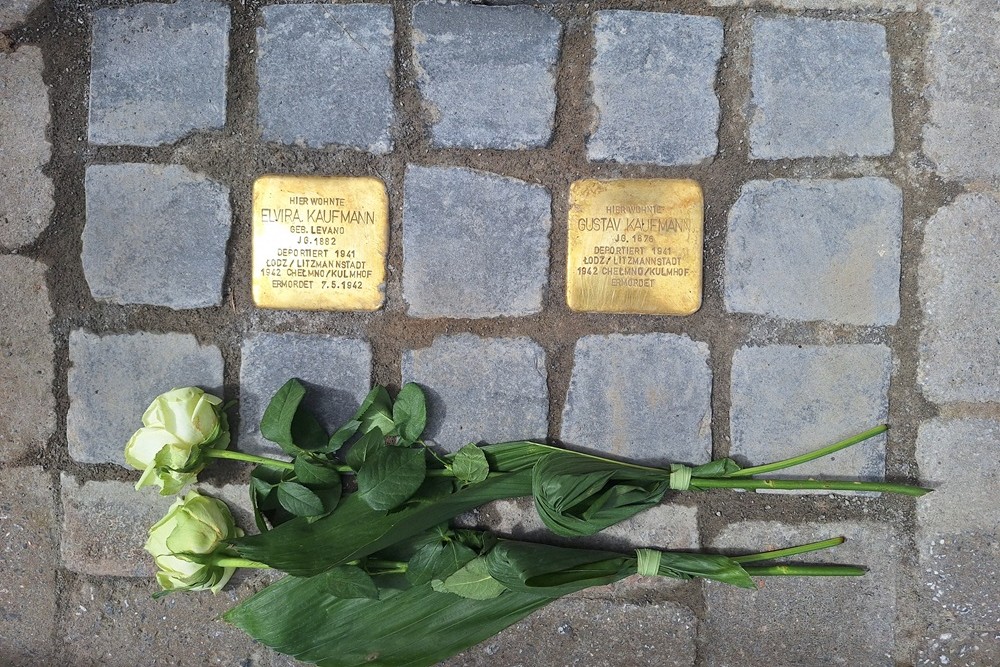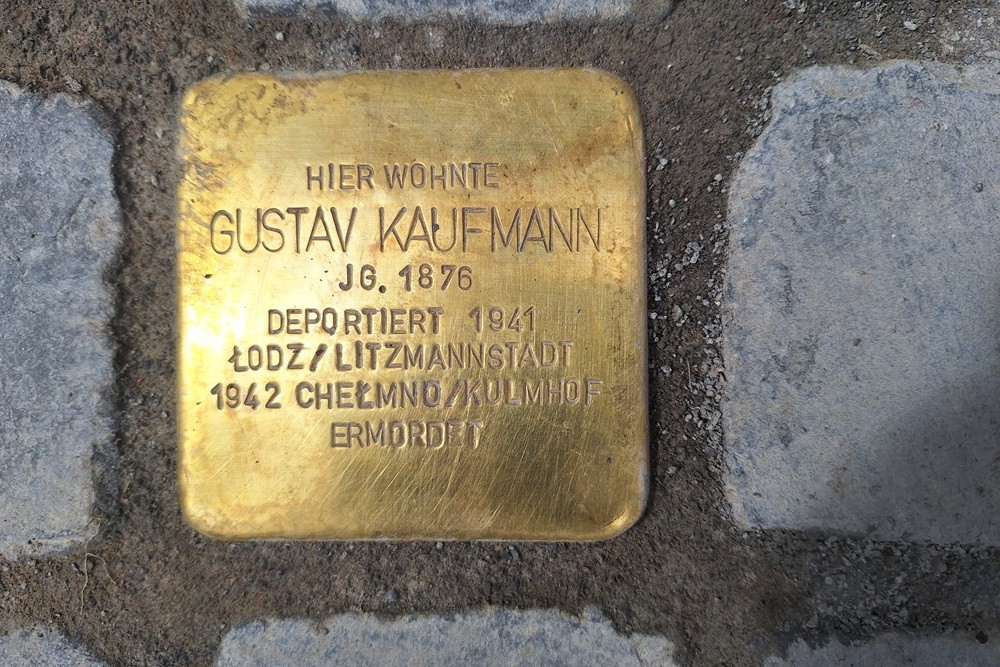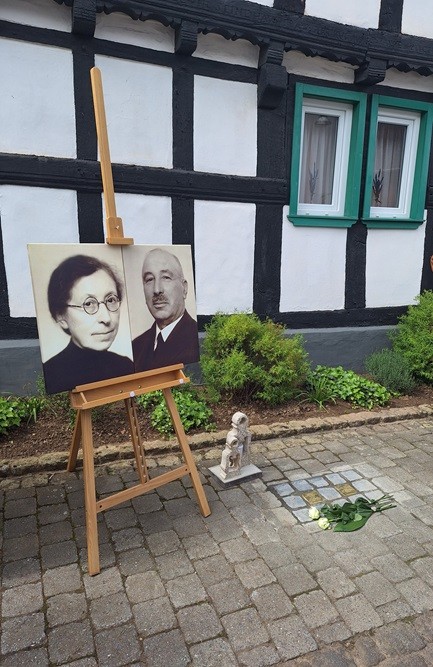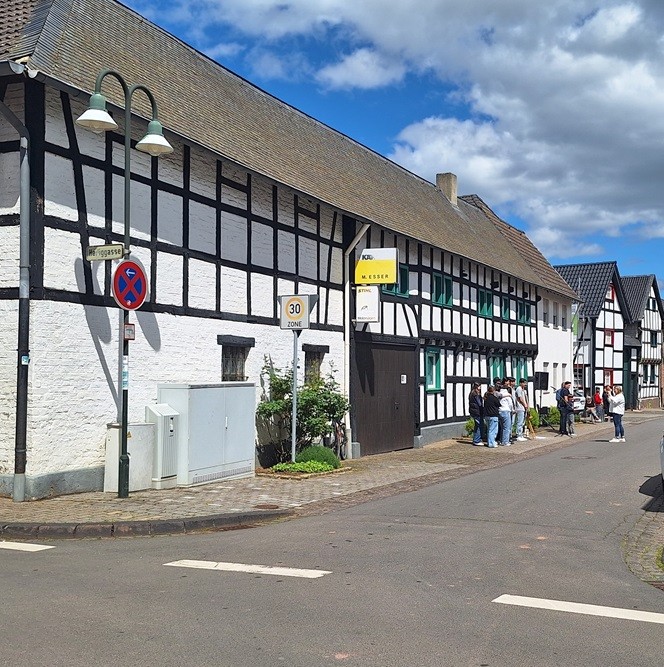Stumbling Stones Friedentalstraße 1
These small brass plaques (Stolpersteine or stumbling stones), placed on May 5, 2024, commemorate:
Gustav Kaufmann, (born 1876, deported 1941 from Lodz/Litzmannstadt, murdered in Chelmno/Kulmhof)
Elvira Kaufmann-Levano, (born 1882, deported 1941 from Lodz/Litzmannstadt, murdered May 7, 1942, Chelmno/Kulmhof)
Gustav Kaufmann and his wife Elvira had been running a large farm in Hostel since 1915, which is called an estate in the Gestapo files. In addition to Gustav Kaufmann, a manager, seven clerks and several female employees worked here.
However, from 1933, the year in which the Nazi regime came to power in Germany, targeted discrimination against the Kaufmann family began, which culminated in the pogrom night of 1938. The residential building and stables were demolished, machines and appliances were destroyed, household goods were stolen, as well as the cattle.
Gustav and Elvira Kaufmann left the farm and moved to Cologne, to an apartment owned by Elvira's brother, Eduard Levano. From here they were deported in 1942 and murdered in the Chelmno concentration camp.
"Stolpersteine" is an art project for Europe by Gunter Demnig to commemorate victims of National Socialism (Nazism). Stolpersteine (stumbling stones) are small, 10x10cm brass plaques placed in the sidewalk in front of a residence of (usually Jewish) victims of the Nazis. Each plaque bears the name of the victim, date of birth and the fate of these people. By doing this, Gunter Demnig gives an individual memorial to each victim. One stone, one name, one person. He cites the Talmud: "A human being is forgotten only when his or her name is forgotten."
Do you have more information about this location? Inform us!
Source
- Text: TracesOfWar
- Photos: Hans Tasma
Nearby
Point of interest
Monument
- Memorial Hostel - Hostel (Mechernich)
- War Memorial Hostel - Hostel (Mechernich)
- War Memorial Glehn - Glehn
Cemetery
- Jewish Cemetery Kommern - Kommern, (Mechernich)
- Anne Frank Memorial Tree Kommern - Kommern (Mechernich)
- Graves War Victims Kommern - Kommern (Mechernich)
Remembrance Stone
- Stumbling Stones Rochusweg 14 - Strempt (Mechernich)
- Stumbling Stones Mühlengasse 24 - Kommern (Mechernich)
- Stumbling Stones Mühlengasse 7 - Kommern (Mechernich)









